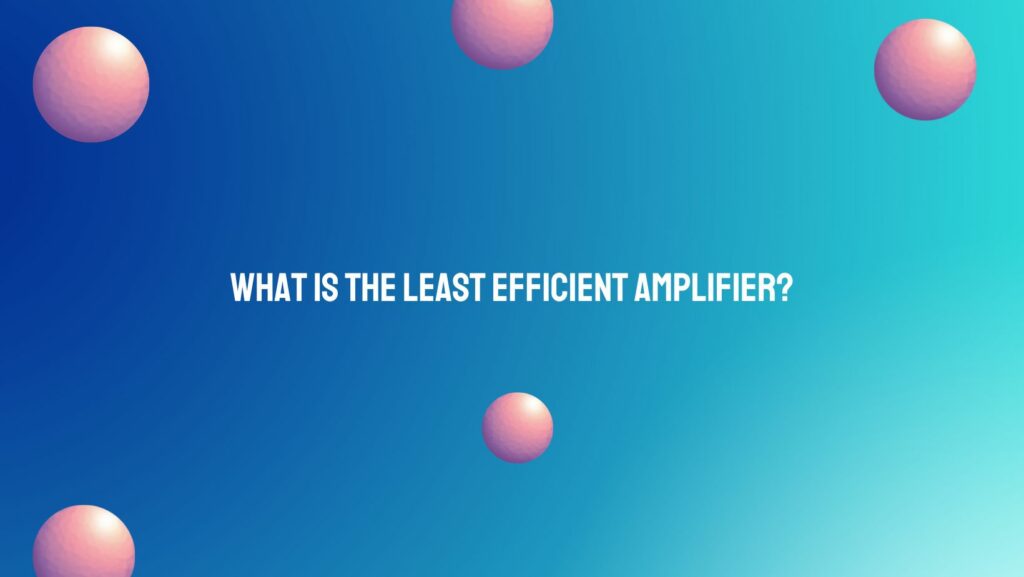In the ever-evolving landscape of audio amplification, discussions often revolve around efficiency, power output, and sonic performance. However, a lesser-explored facet of this conversation is the realm of the least efficient amplifiers—those that, for various reasons, fall on the lower end of the efficiency spectrum. In this article, we’ll take a closer look at the factors that contribute to an amplifier being deemed “least efficient” and examine the potential implications for audio enthusiasts.
- Understanding Amplifier Efficiency:
Amplifier efficiency is a measure of how effectively electrical power is converted into audio output. It is expressed as a percentage and indicates the ratio of output power to input power. While efficiency is generally a desirable attribute in amplifiers, certain designs or technologies may result in lower efficiency for specific models.
- Class A Amplifiers:
Class A amplifiers, known for their simplicity and sonic purity, often fall into the category of least efficient amplifiers. In a Class A amplifier, the output devices are biased to conduct continuously throughout the entire signal cycle, regardless of whether a signal is present. This constant operation leads to a higher consumption of electrical power, resulting in lower efficiency compared to other amplifier classes.
- Single-Ended Tube Amplifiers:
Single-ended tube amplifiers are another example of amplifiers that are often less efficient. In a single-ended design, each amplifying device handles one half of the audio waveform, resulting in a continuous power draw even when the amplifier is idle. While these amplifiers are revered for their warmth and harmonic richness, they may not be the most energy-efficient choice.
- Low-Power Class AB Amplifiers:
Certain low-power Class AB amplifiers, designed for specific applications such as headphone amplifiers or low-wattage guitar amplifiers, may exhibit lower efficiency levels. These amplifiers are optimized for different priorities, such as size, portability, or achieving specific tonal characteristics, and efficiency may not be the primary focus.
- Implications for Power Consumption:
The least efficient amplifiers often translate to higher power consumption. This can have implications for energy efficiency, heat dissipation, and operating costs. While some enthusiasts prioritize sonic characteristics over efficiency, it’s essential to consider the broader impact of amplifier choice on power consumption and environmental considerations.
- Sonic Benefits of Least Efficient Amplifiers:
While least efficient amplifiers may draw more power, they often offer sonic benefits that resonate with enthusiasts. Class A amplifiers and single-ended tube designs, for example, are prized for their ability to deliver a smooth, distortion-free sound with a unique harmonic richness that appeals to audiophiles seeking a specific sonic character.
- Balancing Efficiency and Performance:
The quest for an amplifier involves a delicate balance between efficiency and sonic performance. While least efficient amplifiers may draw more power and generate more heat, their sonic characteristics may be precisely what certain listeners are seeking. The key is to align amplifier choice with individual preferences, system requirements, and the intended application.
Conclusion:
The realm of least efficient amplifiers is a fascinating exploration into the trade-offs between power consumption and sonic performance. While these amplifiers may not be the top choice for those prioritizing energy efficiency, they hold a special place for enthusiasts who value the unique sonic signatures they bring to the audio experience. As technology continues to advance and amplifier design evolves, the interplay between efficiency and sonic character will continue to shape the choices available to audio enthusiasts seeking the perfect balance in their quest for sonic excellence.


